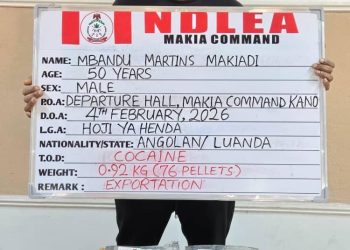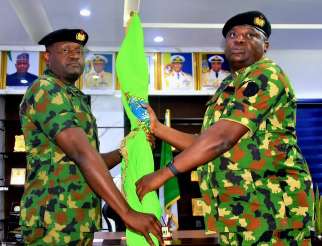By Nkechi Eze
In a decisive step towards deepening electoral inclusivity and strengthening Nigeria’s democratic process, the Independent National Electoral Commission (INEC) and the Nigerian Correctional Service (NCoS) have reaffirmed their commitment to working closely to ensure that eligible inmates in correctional facilities across the country are not denied the right to vote in future elections.
This renewed resolve was the central focus of a high-level meeting on Friday, August 8, 2025, when the Comptroller General of the Nigerian Correctional Service, Sylvester Ndidi Nwakuche, led a delegation to pay a courtesy visit to INEC Chairman, Prof. Mahmood Yakubu, at the Commission’s headquarters in Abuja.
Welcoming the NCoS leadership, Prof. Yakubu praised the long-standing cooperation between the two agencies, particularly through the Inter-Agency Consultative Committee on Election Security (ICCES), where the NCoS has been an active and dependable partner in securing the electoral process. He acknowledged their significant role in election-related operations and expressed readiness to expand the scope of the partnership to address one of the most persistent but often overlooked democratic gaps, the disenfranchisement of inmates.
According to Prof. Yakubu, “The right to vote is a fundamental human right that should not be taken away simply because a citizen is serving time in a correctional facility, particularly those awaiting trial.” He drew attention to practices in other democratic nations, including Ghana, Kenya, and South Africa, where eligible inmates are allowed to participate in elections. He also recalled key legal precedents in Nigeria, particularly rulings of the Federal High Court and Court of Appeal in Benin, which affirmed that awaiting trial inmates are entitled to vote.
While these rulings uphold inmate voting rights, the INEC Chairman stressed that implementation must be based on the voluntary exercise of that right rather than an imposition. He disclosed that INEC and the NCoS had previously constituted a joint technical committee to work out the modalities for operationalising inmate voting. These modalities, he explained, include securing access to facilities for voter registration, establishing polling units within correctional centres, providing voter education, and ensuring the participation of political parties, accredited election observers, and the media to maintain transparency.
Prof. Yakubu emphasized the need for legal clarity to avoid ambiguity, particularly in relation to Section 12(1)(e) of the Electoral Act 2022, which could require interpretation or amendment to fully accommodate inmate participation in elections. He also acknowledged the efforts of civil society organisations such as the Carmelite Prisoners’ Interest Organization (CAPIO) for their sustained advocacy on the matter and welcomed the National Assembly’s growing support for electoral inclusiveness.
On his part, Comptroller General Nwakuche lamented the fact that inmates remain one of the most overlooked segments of Nigeria’s democratic space. Out of over 81,000 inmates currently in correctional facilities, he noted that more than 66 per cent are awaiting trial and, under Nigerian law, are presumed innocent until proven guilty. “Even for those convicted, some fundamental rights remain intact, including the right to vote,” he said.
He further referenced existing court rulings and recent National Assembly resolutions that reaffirm the voting rights of inmates, stressing that the challenge now lies in practical implementation. He called on INEC to help address grey areas and technical challenges, pledging that the NCoS would provide full institutional support, including access to facilities, relevant data, and logistical coordination, to make inmate voting a reality.
“Anybody can find themselves on the other side of the law,” Nwakuche observed. “As a society, we must extend fairness and constitutional rights even to those behind bars.” He assured the INEC Chairman of the NCoS’s readiness to collaborate fully with all stakeholders to ensure no eligible inmate is excluded from the democratic process.
Both leaders expressed optimism that the conversation would translate into concrete steps in the near future, with the active involvement of lawmakers, political parties, civil society organisations, and the media.
















